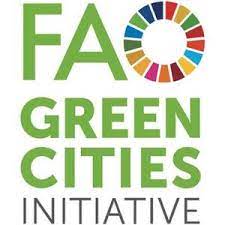The Green Cities Initiative, a project supported by the FAO, will be implemented in Cote d’Ivoire within a few months as part of a partnership with the District of Abidjan, through the Institute of Circular Economy of Abidjan (IECA).
At a press conference held on Tuesday on the banks of the Ebrie Lagoon by the sub-regional coordinator of the Green Cities Initiative, Dr. Gouantoueu Guei, also acting FAO Representative in Cote d’Ivoire, unveiled the details of this project.
The Green Cities Initiative aims to “put the issue of food at the center of the development of cities,” he said, adding that the challenge for cities is to feed their populations, because of their strong urbanization in recent years.
For him, it is imperative to involve urban populations in the process of producing food for consumption in order to bend the curve of dependence on food materials in rural areas.
This green cities project which is implemented in Cote d’Ivoire, in partnership with the District of Abidjan, will be articulated in two phases.
The first phase consists of a pilot operation to collect organic waste and transform it into animal protein.
As for the second phase, it concerns the support of green city projects useful for urban resilience and habitat.
The projects will be listed in 24 cities throughout Côte d’Ivoire.
“The waste will be used to produce compost and people will be trained on the use of chemicals so that what we consume is healthy and even the food of animals that we raise,” Dr. Gouantoueu Guei said.
The director of the Institute of Circular Economy of Abidjan, Kopieu Gonkanou, added that the project reduces the waste of natural resources through, among other things, the transformation and reuse of some waste.
“Today, the circular economy calls on all of us so that what we used to call waste is a new resource,” insisting that this project will create about 60,000 jobs.
“We will maintain the development of urban agriculture, chicken farming, with small producers that we must supervise and train so that they can use the by-products that will come out of the transformation called the bioconversion of food waste,” he added.
The Green Cities Initiative is an ecological project based on three pillars, agriculture and reforestation in urban and peri-urban areas, populations living in cities to practice market gardening, either in their garden or other suitable land.
The project also aims to promote a food system that avoids waste.
For the pilot phase of the green cities project, about 100 million CFA francs will be made available by the FAO to support the Ivorian state.
AP/fss/as/APA


